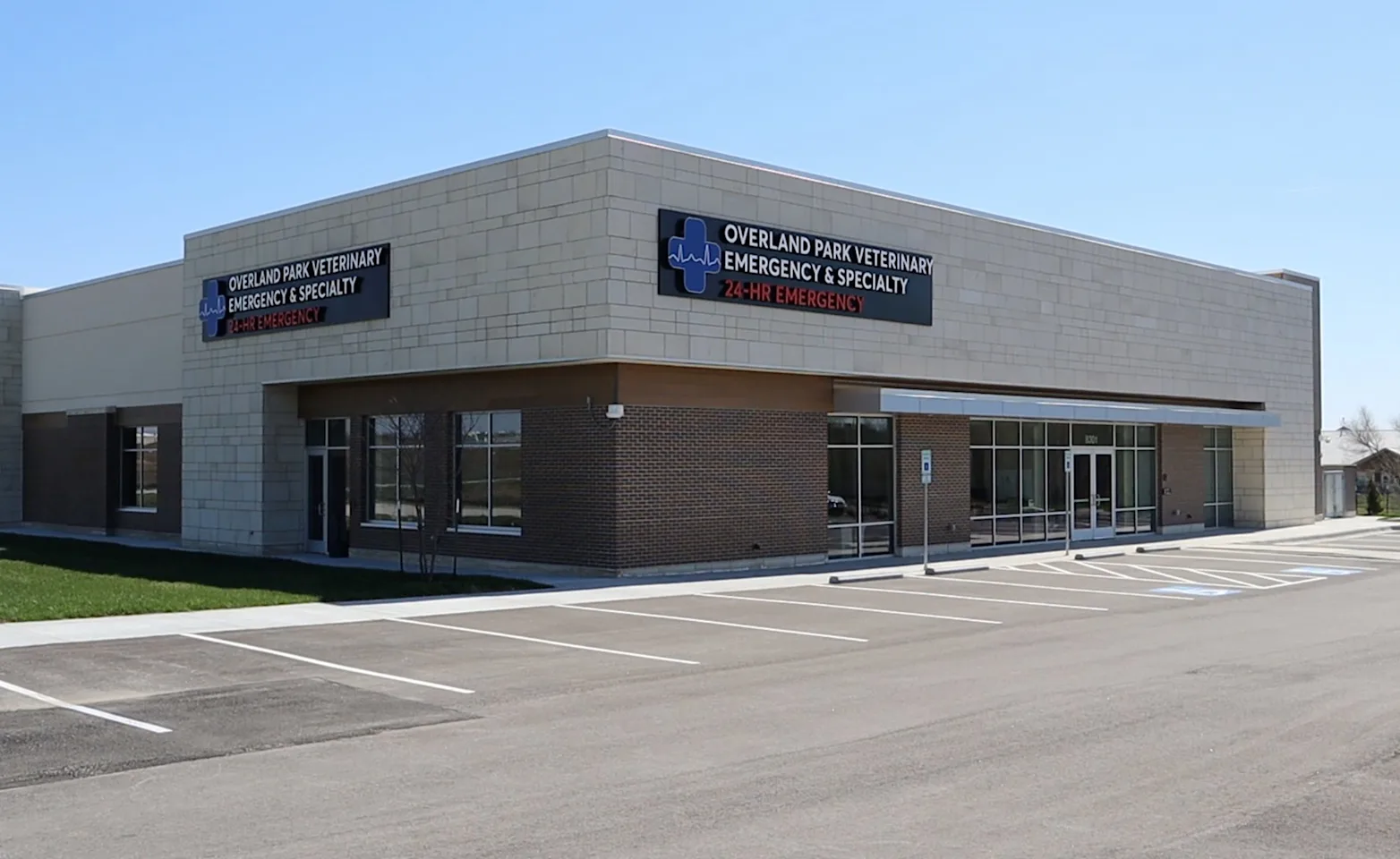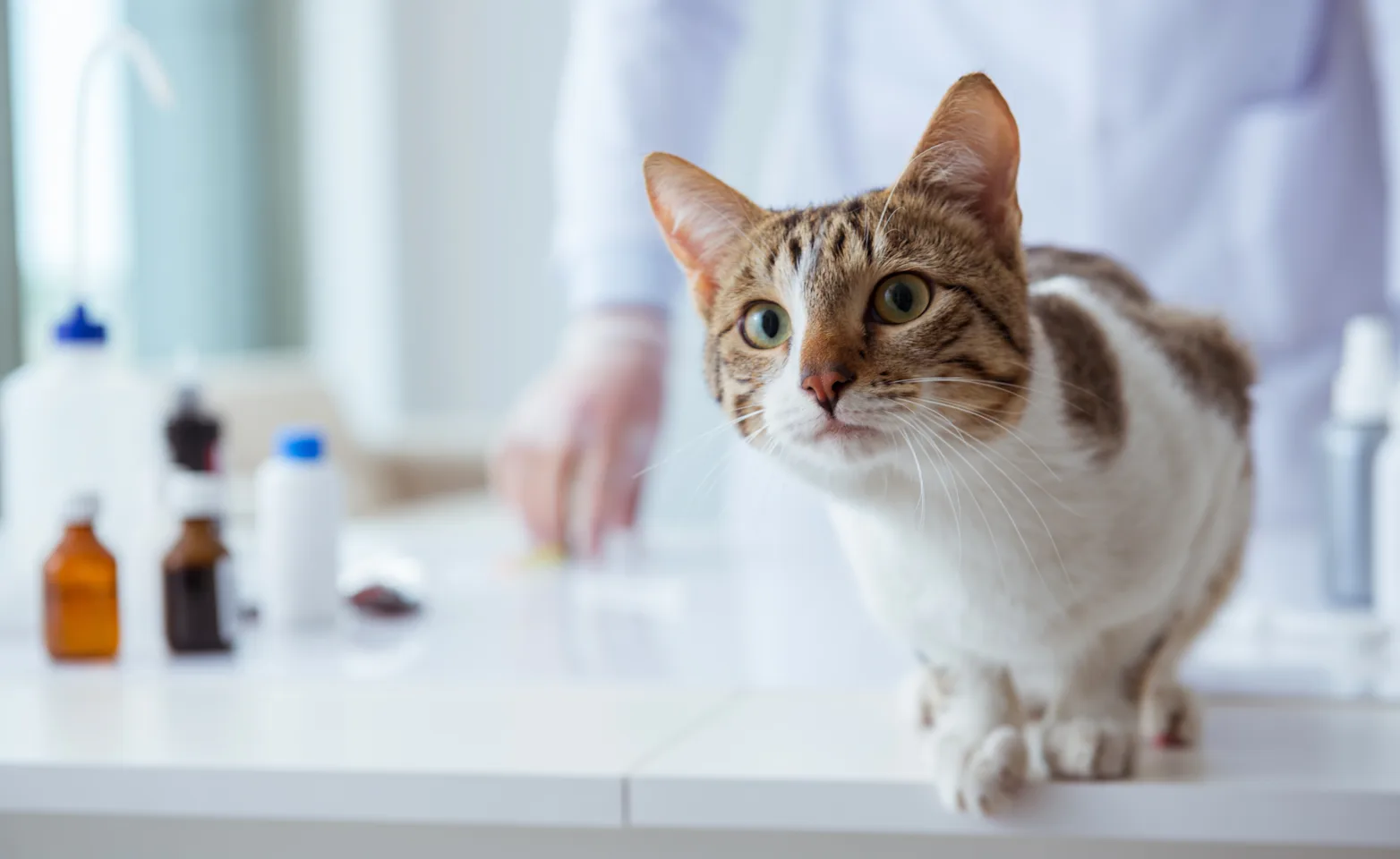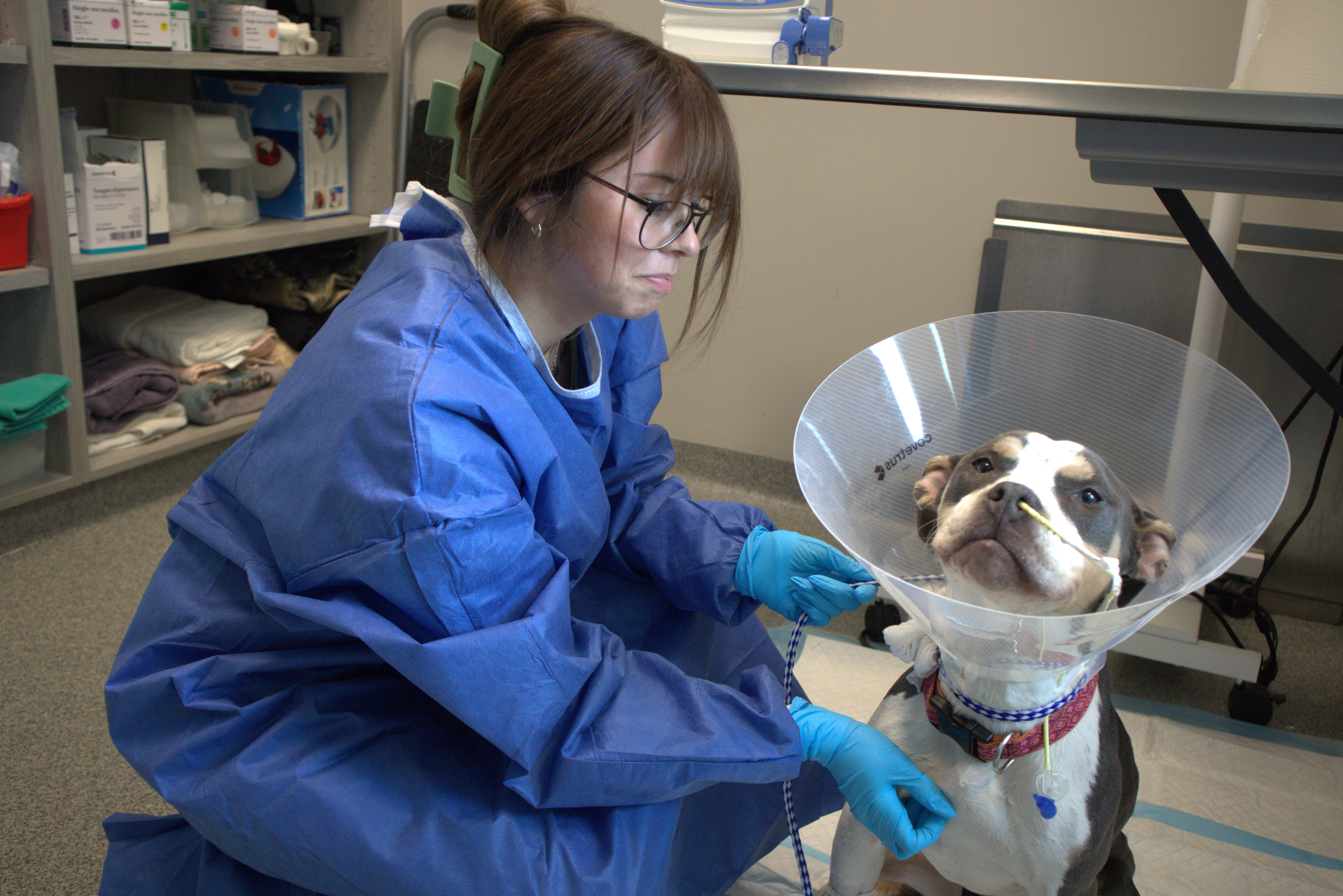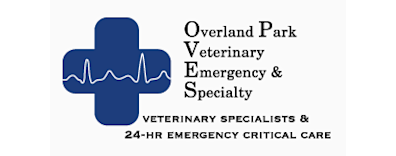Overland Park Veterinary Emergency and Specialty

Overland Park Veterinary Emergency & Specialty
How to Tell if Your Pet is Having an Emergency
Not all pet injuries and illnesses require immediate medical attention. However, if your pet is experiencing any one of the below pet health emergency symptoms, please call or visit our animal hospital right away:
Not breathing or visibly struggling to breathe
Unresponsive or unable to rouse
Obvious broken bone
A visible, deep, open wound with excessive bleeding or visible bone
Anaphylactic shock
Heatstroke
Unable to get up after collapsing
Gums or tongue are either bright red or blue
Bite or sting from a venomous snake or insect or that is causing a severe reaction
Bite from a stray animal or any animal whose vaccination history is unknown
Sudden paralysis of the back legs, particularly in cats
Seizures that last longer than a couple of minutes or multiple seizures in a row, or the first seizure in your pet
This list is not exhaustive and does not cover all possible emergency symptoms. If you have questions about your pet’s symptoms or are concerned that they may be experiencing an emergency, please call us at (913) 361-3800. The emergency care team at OPVES is available to assist you 24/7. We have a team of emergency veterinarians on staff to make sure your pet gets the best possible critical care in Overland Park, KS.
What to do in a Pet Emergency
If your pet is currently experiencing an emergency, follow these steps to keep your pet safe and give them the best possible chance at a full recovery:
Remain as calm as possible. If you panic, you may forget something or even cause your pet to feel more stressed and scared than they probably already are.
If your pet is in an unsafe location, such as in the road or near a dangerous animal, carefully move them to a safe spot. Try not to move your pet more than is absolutely necessary, as too much movement may worsen their injuries.
Contact us at (913) 361-3800 right away. Let us know what is going on with your pet so that we know what to expect when you arrive.
Load your pet into your vehicle as carefully as possible. If necessary, use towels as a makeshift stretcher. Animals in severe pain may become aggressive, so you may need to loosely drape a soft cloth over your pet’s eyes to help them calm down.
Drive quickly and carefully to us and follow all instructions upon arrival.
When in doubt, take your pet straight to the emergency vet. We can help you assess the situation and make sure that your pet gets the care they need.

Pet Poison Control
If you suspect that your pet has ingested or been exposed to a poisonous substance or is showing any negative symptoms, please call the Pet Poison Helpline immediately at (855) 764-7661.
By calling the Pet Poison Helpline, a licensed toxicologist will be assigned to your pet's case and work closely with our ER veterinarians to create the best care plan possible. Pet owners must contact the Pet Poison Helpline in order for our team to provide treatment.
Please note: an $85 incident fee applies when calling the Pet Poison Helpline.
Questions regarding the Pet Poison Helpline? Give us a call at (913) 361-3800.

Specialized Critical Care Treatment and Therapy
Anesthesia for high risk, critical patients
ICU Ventilator
Oxygen
Urinary Catheter Placement
IV Catheter Placement
CPR
Blood and Plasma Transfusion
Feeding Tubes
Continues ECG
Continuous suctions for chest and other drains
Nutritional support
Pain medication delivery via constant rate infusion
Parvo Virus testing and treatment
Ethylene glycol (antifreeze) testing
Intensive Monitoring
Blood Gas Measurement (arterial and venous)
Blood Pressure (direct and indirect)
Urinary Catheter placement and measurement of urine output
